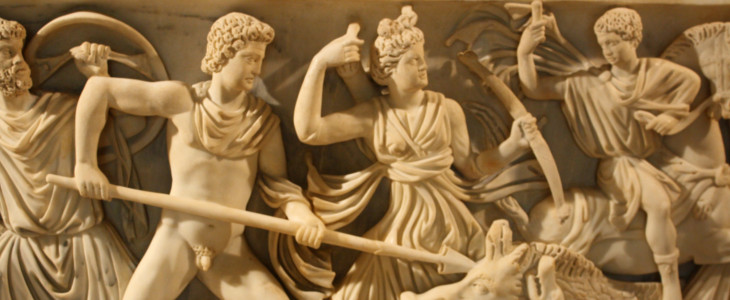The Romans Developed the First Trusts (Fideicommissum)

The Romans developed the first trusts (fideicommissum), which were testamentary trusts created by wills. The first living trusts (inter vivos), were developed in England during the 12th-century crusades. When a landowner left England to fight in the crusades, he conveyed ownership of his lands in his absence to manage the estate and pay and receive feudal dues, on the understanding that the ownership would be conveyed back on his return. However, crusaders often encountered refusal to hand over the property upon their return and unfortunately, English common law did not recognise the crusaders claim.
The unhappy crusader would then petition the king, who would refer the matter to his Lord Chancellor (who could decide a case according to his conscience). The Lord Chancellor considered it unconscionable that the legal owner could go back on his word and deny the claims of the crusader (the ‘true’ owner). Therefore, he would find in favour of the returning crusader, and the Court of Chancery would continually recognise the claim of a returning crusader. From this developed what we now know as trusts, with the crusader the beneficiary and the acquaintance the trustee.
Trusts are established for a variety of purposes including privacy, estate planning, tax planning, pension funds, charities, investment trusts, and asset protection. Although trusts are prolific, due to the privacy afforded to trusts, the exact number of trusts is unknown. Australia, for example, has only 24 million people, but over 1 million trusts.
During the 15th century, trusts were first used to save tax (avoid the payment of feudal taxation). If a person died, the law stated a landlord was entitled to money before the land passed to an heir, and the landlord got all of the property if there were no heirs (under the doctrine of escheat). By transferring a property’s title to a group of people (trustees) for common use (i.e. establishing a trust), this tax was avoided. This was because It was highly unlikely all the trustees would die at the same time, and if a trustee died they could be replaced.
The tax saving benefits of Australian family trusts include:
- Flexibility on income distributions. The trustee decides before the 30th June each financial year how that year’s trust income is to be distributed between the various beneficiaries. Generally, income will be distributed to beneficiaries in lower tax brackets.
- Ability to stream capital gains and franked dividends to specific beneficiaries. For example, capital gains should be streamed to beneficiaries with carried forward capital losses.
- Ideal structure for owning capital appreciating asset (such as land and shares) as the beneficiaries can access the 50% CGT discount on any realised capital gains (if the assets were owned for more than 12 months).
- Allows for succession planning and the transfer of wealth to future generations without immediate tax consequences.
"You’d be stupid not to try to cut your tax bill and those that don’t are stupid in business"
- Bono: U2




